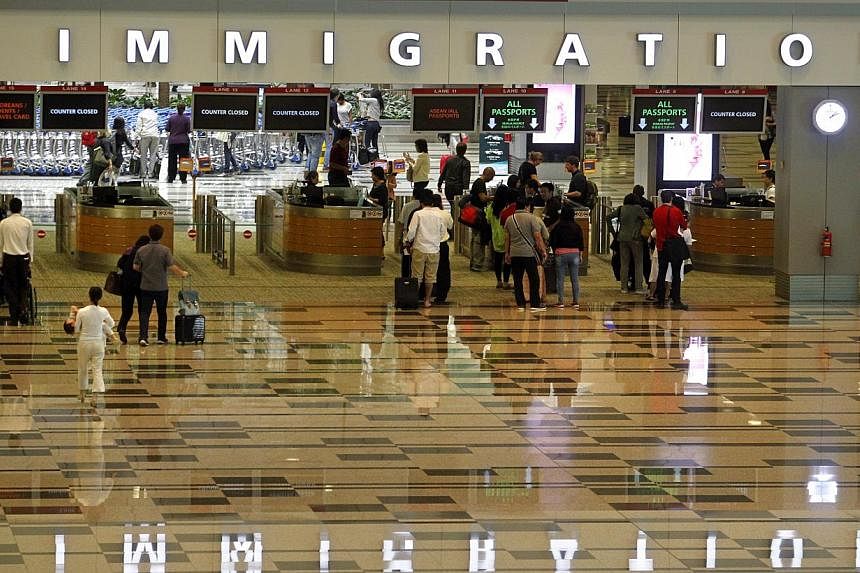TWO interesting commentaries this week give new twists to the ongoing debate on immigration worldwide.
How should countries regulate the flow of foreigners coming in to work and live? How to decide who gets the privilege to come?
And what's the impact on locals?
A bold proposal is to let would-be migrants bid for permanent residency and other visas, and giving them to the highest bidders.
The idea originated from Professor Gary Becker, a Nobel laureate in economics and guru of "human capital" concept. He had suggested allocating visa places to those willing to pay for them. Charging US$50,000 (S$66,000) per visa would attract those who would gain the most by migration, he argued years ago.
In an article published in the Straits Times Opinion pages, University of Sydney professor Jock Collins discusses the proposal, adapted by an Australian think-tank, but highlights the limits of using classical economics to allocate migrant places.
You may not agree with the arguments, but it's interesting to contemplate what would happen if a city like Singapore adopted it. We have the COE system for cars, where certificates of entitlement to own cars go to the highest bidders. Why not a COE for Permanent Residents?
The idea may appeal from a revenue-generating point of view. But once you factor in politics and ethics, it becomes less palatable
It would enrich state coffers, but raise income inequality. It would be politically divisive. Its impact on social cohesion and community might be unpleasant.
The other article is from ecologist Natalia Huang. She writes in When Nature Ruffles Feathers about what happens when an exotic (foreign) species invades a space and displaces a native species. In this case, it was the Javan Mynah displacing the native Common Mynah in Singapore.
"Unfortunately these natives are usually species that are more shy, sensitive to disturbance, rare and threatened. With increasing invasive exotic species, the original ecosystem no longer provides the services it was developed to provide, and may become so disrupted it collapses."
She adds that cities often attract large numbers of exotic species. Most times, it doesn't matter.
"What matters more is maintaining the diversity of native plants and animals, because diversity in nature... contributes to the overall health of our environment.
"By nature of the prevailing human disturbance, cities are almost always going to support a certain number of exotic species. And perhaps these urbanised areas are so modified by human interference already that having more exotic species does not really matter.
"What's important is to ensure exotic species do not enter our more pristine forests, where our rarer species live."
This might mean protecting certain areas for native species.
Ms Huang adds: "A robust and healthy ecosystem with high native biodiversity can naturally exclude exotic species, but maintaining that robustness and health is the tricky bit, especially when we live in a state of ceaseless development.
"What we do depends on the importance we, as a society, place on our native ecosystems and biodiversity. And it also depends on the type of country we want to live in. A country with some development, native biodiversity and healthy forests, or a country with pervasive development, widespread exotic species and degraded areas?"
While Ms Huang was writing about bird ecology, some readers would by now be pondering the application of such insights into the human population.
Protect shy natives from more aggressive invaders? Protect and ringfence certain areas? Think of protecting locals when it comes to the workplace, and higher subsidies for them in schools and hospitals. And restricting purchase of Housing Board flats to locals, and slapping on higher stamp duties on foreigners who buy properties.
Need to ensure robust native biodiversity so exotic species don't displace them? Think of preserving a strong Singaporean identity and culture to gel locals together.
The sight of mynahs squabbling at food courts will take on a different hue to you from now on, I wager.
Chua Mui Hoong blogs weekly on notable commentaries and issues.


